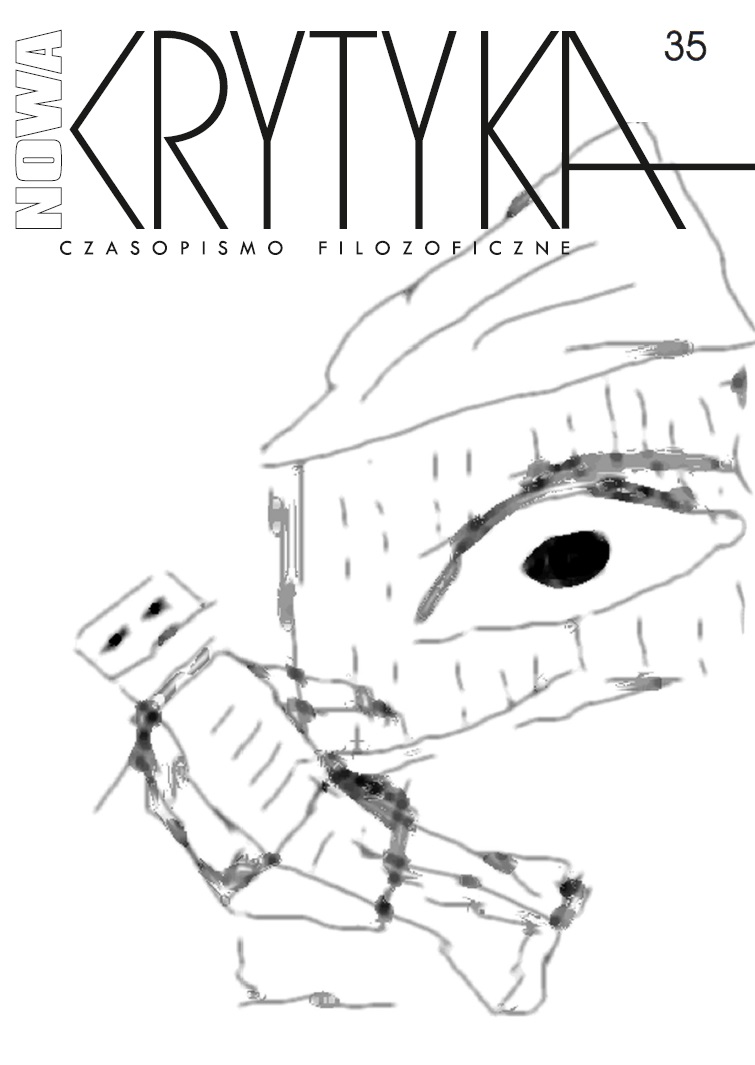Qui perd gagne, czyli przegrany wygrywa. Szkic z Sartre’owskiej fenomenologii spojrzenia
Qui perd gagne, t.i. Th e One Who is Losing Wins. A Draft on Sartre’s Phenomenology of Look
Author(s): Greta Julianna WierzbińskaSubject(s): Philosophy, Philosophical Traditions, Phenomenology
Published by: Wydawnictwo Naukowe Uniwersytetu Szczecińskiego
Keywords: phenomenology of body; phenomenology of perception; le regard; look; Me; other; relation; subjectivity; conflict; liberty; objectification; Sartre; Merleau-Ponty; phantasmat. Lacan; desire; jouissance
Summary/Abstract: In Being and Nothingness Sartre develops a phenomenology of the ‘lived body’ that aims both to acknowledge the necessity that consciousness be embodied, and to accommodate the central phenomenological consequences of this embodiment, without compromising the radical freedom of the for-itself. Aim of this paper is exploration of the question of the relation between two different subjects in J.P. Sartre’s phenomenology. The relation between me and the other is based on a constant conflict, according to Sartre it has not cognitive but existential character. I would explore one of the basic concepts of Sartre theory, namely “le regard”, (the look). Looking at someone, meeting one’s eyes is always a kind of astonishement, shocking in its radicality. Can I know the Other without degrading or objectifying him? Can the Other know me? Can I look at the Other without the risk of reducing him/her to être-en-soi? I would show that the experience of desire (especially sexual one) and affection is bound up with the clash of interpersonal perspectives involved in our transactions with the Other as well as with the question of freedom. In the case of infatuation, in Sartre’s view, it is considered as an invitation to bad faith. Sartre offers a rethinking and critique of basic philosophical positions concerning the concept of perception presented by Husserl and Merleau-Ponty. He holds that desire and distance inform the concept of “life”. Levinas identified a similar structure in Descartes’s notion of the infinite. By mentioning Lacan and Merleau Ponty conceptions I would try to elaborate and extend the formal structure of desire and distance by drawing on motifs as yet unexplored in the French phenomenological tradition, especially the notions of “lived-body” which is prominent in the later Husserl but also appear in non-phenomenological thinkers such as Bergson.
Journal: Nowa Krytyka: czasopismo filozoficzne.
- Issue Year: 2015
- Issue No: 35
- Page Range: 61-79
- Page Count: 19
- Language: Polish

